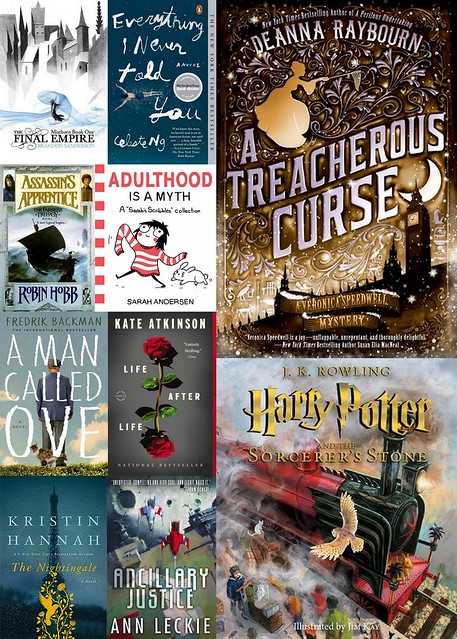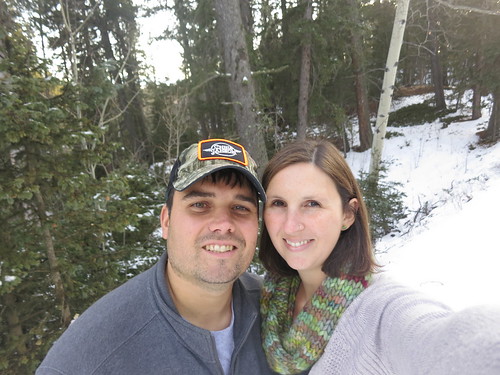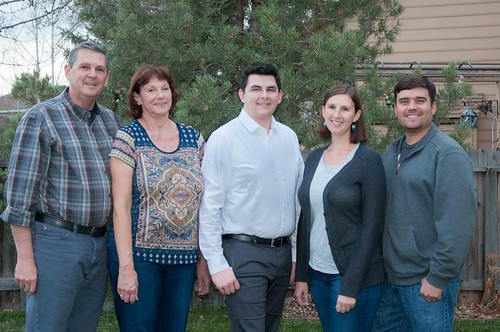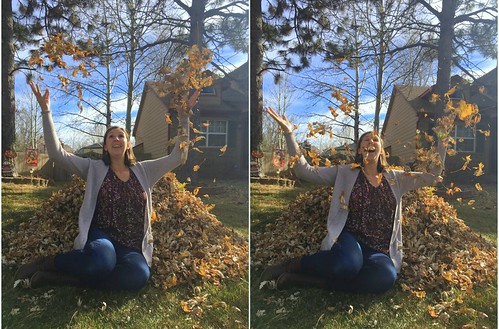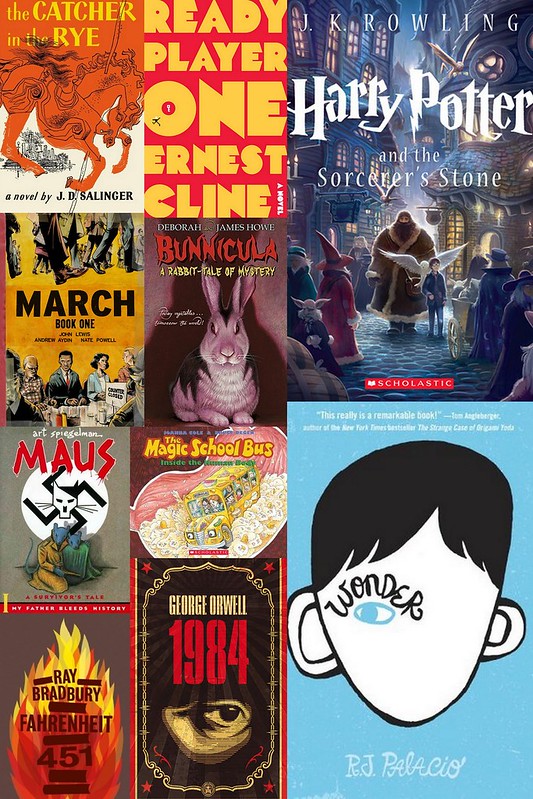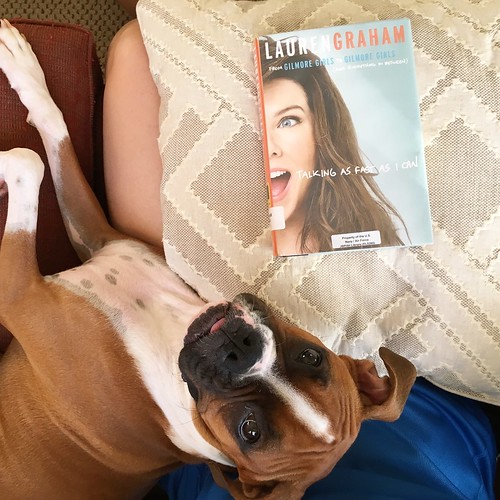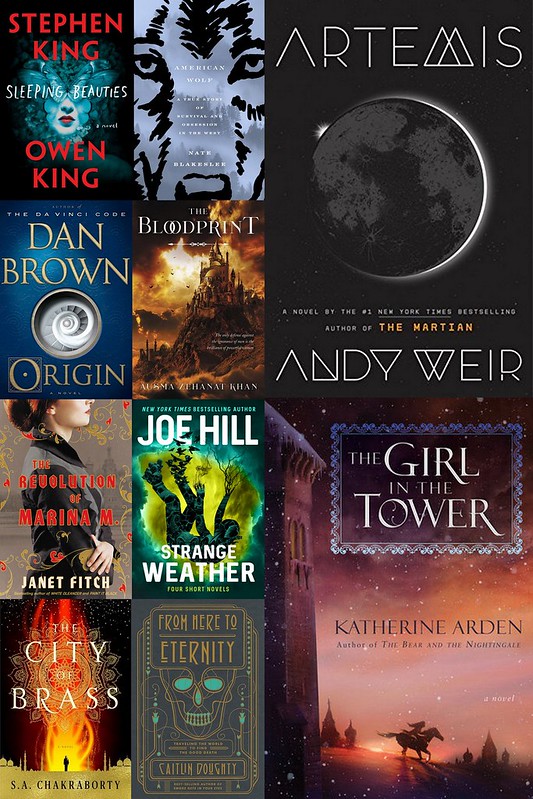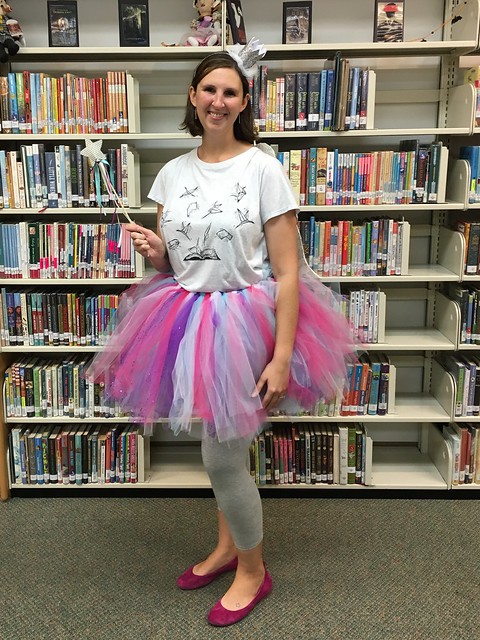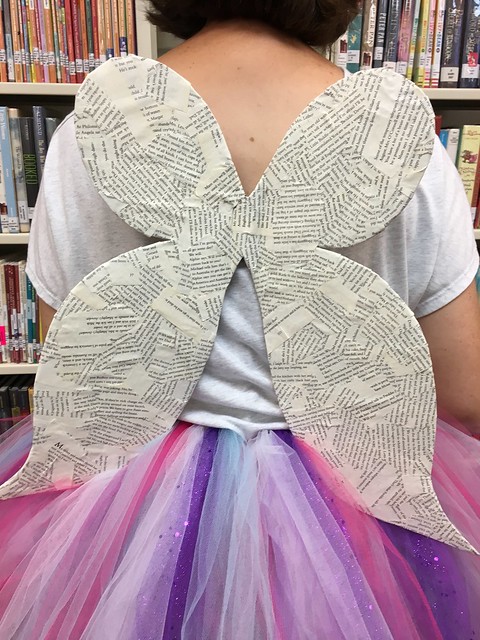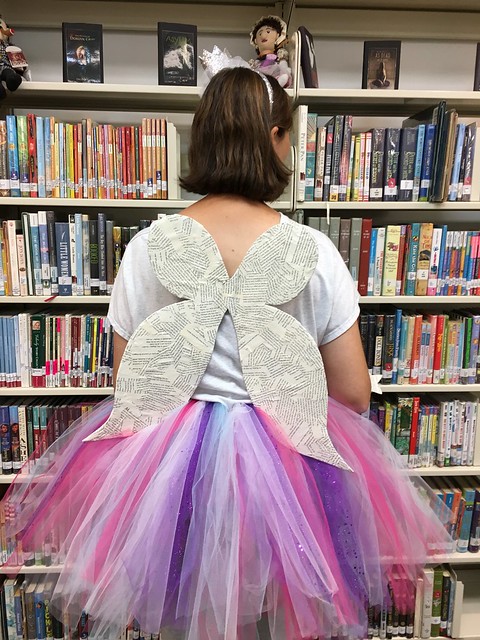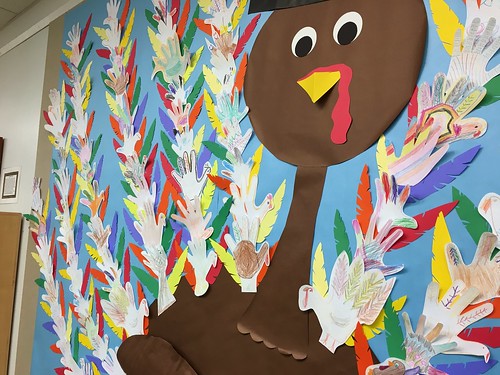It's the last week of Non-Fiction November! I had a blast participating in the link-ups and reading other bloggers' posts, and I will definitely do it again next year. This weeks' prompt -- hosted by Lory at
Emerald City Book Review -- is about the books we added to our to-read lists this month. I included books I discovered through Non-Fiction November, plus the other NF books I came across.
 Born a Crime: Stories From a South African Childhood by Trevor Noah
Where I found it:
Born a Crime: Stories From a South African Childhood by Trevor Noah
Where I found it: a whole slew of Non-Fiction November posts (I had heard of it, of course, but since I don't watch Noah's show I never gave it much thought)
From Goodreads: Trevor Noah's unlikely path from apartheid South Africa to the desk of "The Daily Show" began with a criminal act: his birth. Trevor was born to a white Swiss father and a black Xhosa mother at a time when such a union was punishable by five years in prison. Living proof of his parents' indiscretion, Trevor was kept mostly indoors for the earliest years of his life, bound by the extreme and often absurd measures his mother took to hide him from a government that could, at any moment, steal him away. Finally liberated by the end of South Africa's tyrannical white rule, Trevor and his mother set forth on a grand adventure, living openly and freely and embracing the opportunities won by a centuries-long struggle.
Jane Austen at Home: A Biography by Lucy Worsley
Where I found it: Goodreads Choice Awards
From Goodreads: On the eve of the two hundredth anniversary of Jane Austen's death, take a trip back to her world and the many places she lived as historian Lucy Worsley visits Austen's childhood home, her schools, her holiday accommodations, the houses -- both grand and small -- of the relations upon whom she was dependent, and the home she shared with her mother and sister towards the end of her life. In places like Steventon Parsonage, Godmersham Park, Chawton House and a small rented house in Winchester, Worsley discovers a Jane Austen very different from the one who famously lived a "life without incident." She shows readers a passionate Jane Austen who fought for her freedom, a woman who had at least five marriage prospects, but in the end a woman who refused to settle for anything less than Mr. Darcy.
Endurance: A Year in Space, a Lifetime of Discovery by Scott Kelly
Where I found it: friend recommendation
From Goodreads: The veteran of four space flights and the American record holder for consecutive days spent in space, Scott Kelly has experienced things very few have. Now, he takes us inside a sphere utterly inimical to human life. He describes navigating the extreme challenge of long-term spaceflight, both existential and banal: the devastating effects on the body; the isolation from everyone he loves and the comforts of Earth; the pressures of constant close cohabitation; the catastrophic risks of depressurization or colliding with space junk, and the still more haunting threat of being unable to help should tragedy strike at home -- an agonizing situation Kelly faced when, on another mission, his twin brother's wife, Gabrielle Giffords, was shot while he still had two months in space. Kelly's humanity, compassion, humor, and passion resonate throughout, as he recalls his rough-and-tumble New Jersey childhood and the youthful inspiration that sparked his astounding career, and as he makes clear his belief that Mars will be the next, ultimately challenging step in American spaceflight.

Nothing to Envy: Ordinary Lives in North Korea by Barbara Demick
Where I found it: Book Riot (I think)
From Goodreads: Award-winning journalist Barbara Demick follows the lives of six North Korean citizens over fifteen years --a chaotic period that saw the death of Kim Il-sung, the rise to power of his son Kim Jong-il, and a devastating famine that killed one-fifth of the population. Demick brings to life what it means to be living under the most repressive totalitarian regime today -- an Orwellian world that is by choice not connected to the Internet, where displays of affection are punished, informants are rewarded, and an offhand remark can send a person to the gulag for life. Demick takes us deep inside the country, beyond the reach of government censors, and through meticulous and sensitive reporting, we see her subjects fall in love, raise families, nurture ambitions, and struggle for survival. One by one, we witness their profound, life-altering disillusionment with the government and their realization that, rather than providing them with lives of abundance, their country has betrayed them.

Into the Silence: The Great War, Mallory, and the Conquest of Everest by Wade Davis
Where I found it: Julz Reads (Ask/Be/Become the Expert: mountains)
From Goodreads: In a monumental work of history and adventure, Wade Davis asks not whether George Mallory was the first to reach the summit of Everest, but rather why he kept on climbing on that fateful day. His answer lies in a single phrase uttered by one of the survivors as they retreated from the mountain: "The price of life is death." Mallory walked on because for him, as for all of his generation, death was but "a frail barrier that men crossed, smiling and gallant, every day." As climbers they accepted a degree of risk unimaginable before the war. They were not cavalier, but death was no stranger. They had seen so much of it that it had no hold on them. What mattered was how one lived, the moments of being alive.
For all of them Everest had become an exalted radiance, a sentinel in the sky, a symbol of hope in a world gone mad.
The Outrun: A Memoir by Amy Liptrot
Where I found it: a week 1 or 2 NF November post (didn't write down whose, though!)
From Goodreads: When Amy Liptrot returns to Orkney after more than a decade away, she is drawn back to the Outrun on the sheep farm where she grew up. Approaching the land that was once home, memories of her childhood merge with the recent events that have set her on this journey.
Amy was shaped by the cycle of the seasons, birth and death on the farm, and her father's mental illness, which were as much a part of her childhood as the wild, carefree existence on Orkney. But as she grew up, she longed to leave this remote life. She moved to London and found herself in a hedonistic cycle. Unable to control her drinking, alcohol gradually took over. Now thirty, she finds herself washed up back home on Orkney, standing unstable at the cliff edge, trying to come to terms with what happened to her in London.
Spending early mornings swimming in the bracingly cold sea, the days tracking Orkney's wildlife -- puffins nesting on sea stacks, arctic terns swooping close enough to feel their wings -- and nights searching the sky for the Merry Dancers, Amy slowly makes the journey towards recovery from addiction.

Birding Without Borders: An Obsession, a Quest, and the Biggest Year in the World by Noah Strycker
Where I found it: Doing Dewey (Non-Fiction November reviews)
From Goodreads: In 2015, Noah Strycker set himself a lofty goal: to become the first person to see half the world’s birds in one year. For 365 days, with a backpack, binoculars, and a series of one-way tickets, he traveled across forty-one countries and all seven continents, eventually spotting 6,042 species -- by far the biggest birding year on record.
This is no travelogue or glorified checklist. Noah ventures deep into a world of blood-sucking leeches, chronic sleep deprivation, airline snafus, breakdowns, mudslides, floods, war zones, ecologic devastation, conservation triumphs, common and iconic species, and scores of passionate bird lovers around the globe. By pursuing the freest creatures on the planet, Noah gains a unique perspective on the world they share with us -- and offers a hopeful message that even as many birds face an uncertain future, more people than ever are working to protect them.
